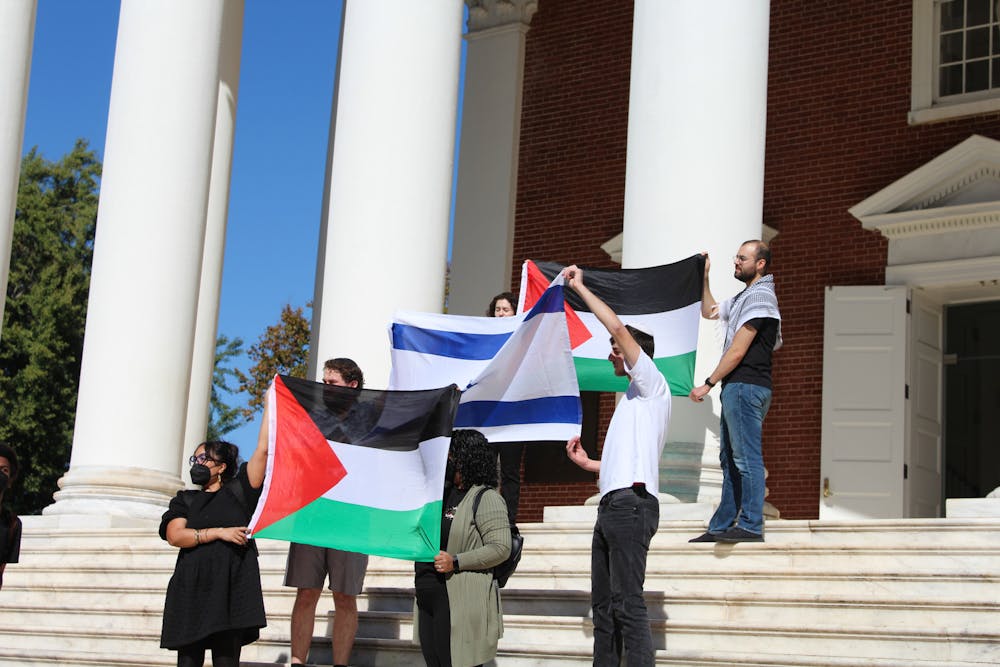University President Jim Ryan addressed the conflict between Israel and Palestine for a second time by offering resources for students' mental health and well-being and emphasizing University policy against antisemitism and Islamophobia in an email sent to all students Monday afternoon.
This second email touches on a future initiative the University will begin to take in order to gain a better understanding of the way the University can improve experience for affected community members. More details will be shared soon, according to Ryan.
Ryan said that while the University has not received any reports of violence or credible threats related to the conflict, the institution has an ongoing responsibility to teach and care for the community.
“This conflict has shed new light on global Antisemitism and Islamophobia,” Ryan wrote. “It has also offered an important, though troubling, reminder that religious minorities often experience unique challenges in communities around the world, including our own.”
Ryan’s email update follows heightened student activism surrounding the Israel-Hamas war. Jewish students organized a balloon installation last Friday to honor the over 200 hostages in Gaza. The recent student walkout Oct. 25 showed support for Palestine and demanded that the University acknowledge the death toll in the Middle East.
College campuses have been a hotbed for activism over the conflict, often with heated protests and fiery debates. Violence has also struck other campuses. A student at Cornell University was charged with making violent antisemitic threats online, while Stanford University is currently investigating a hit-and-run as a suspected hate crime against an Arab Muslim student.
Hamas, which has controlled Gaza since 2007, launched rocket attacks into Israel in early October, which has resulted in over 1,400 Israeli casualties since the initial attack and the taking of hostages. Israel declared war on Hamas on Oct. 8, leading to daily rocket exchanges, a ground invasion of northern Gaza, and the encirclement of Gaza City by Israeli forces.
This conflict has resulted in significant casualties among Palestinians, including the deaths of over 4,000 children, and has caused severe shortages of essential resources in the region due to restricted humanitarian access and aid by Israel.
Ryan sent an initial email sent Oct. 11. condemning Hamas’ terrorist attacks and asking the community to be compassionate with each other.
University members who believe they have experienced discrimination or harassment have the option to submit a report using the Just Report It system, and University personnel will assess the report for further necessary actions.
“We take concerns of bias, discrimination, and harassment very seriously and we are prepared to intervene to de-escalate situations and pursue disciplinary actions, as needed,” Ryan said.
Given the emotional toll such global events can take, other resources named in the email include confidential avenues such as Counseling and Psychological Services for students and the Faculty Employee Assistance Program for staff and faculty.
To encourage thoughtful engagement with the multifaceted issues arising from the Middle East conflict, Ryan said the University has organized academic programming. Collaborations with the Jewish Studies Program, Karsh Center for Democracy and more aim to provide students with a nuanced understanding of the conflict.
There will be a lunchtime discussion on the anthropology and literature of Israel and Palestine Nov. 9 at noon in Gibson 341. The Office of the Provost will be hosting a brief history of the Israel-Palestine conflict on Nov. 15 at 4 p.m. in the Newcomb Hall Commonwealth room. For more upcoming academic programming events, click here.
Ryan expressed gratitude for the valuable input received from concerned community members who have offered suggestions the University can take during this ensuing war and that more details regarding the initiative will be shared shortly.







